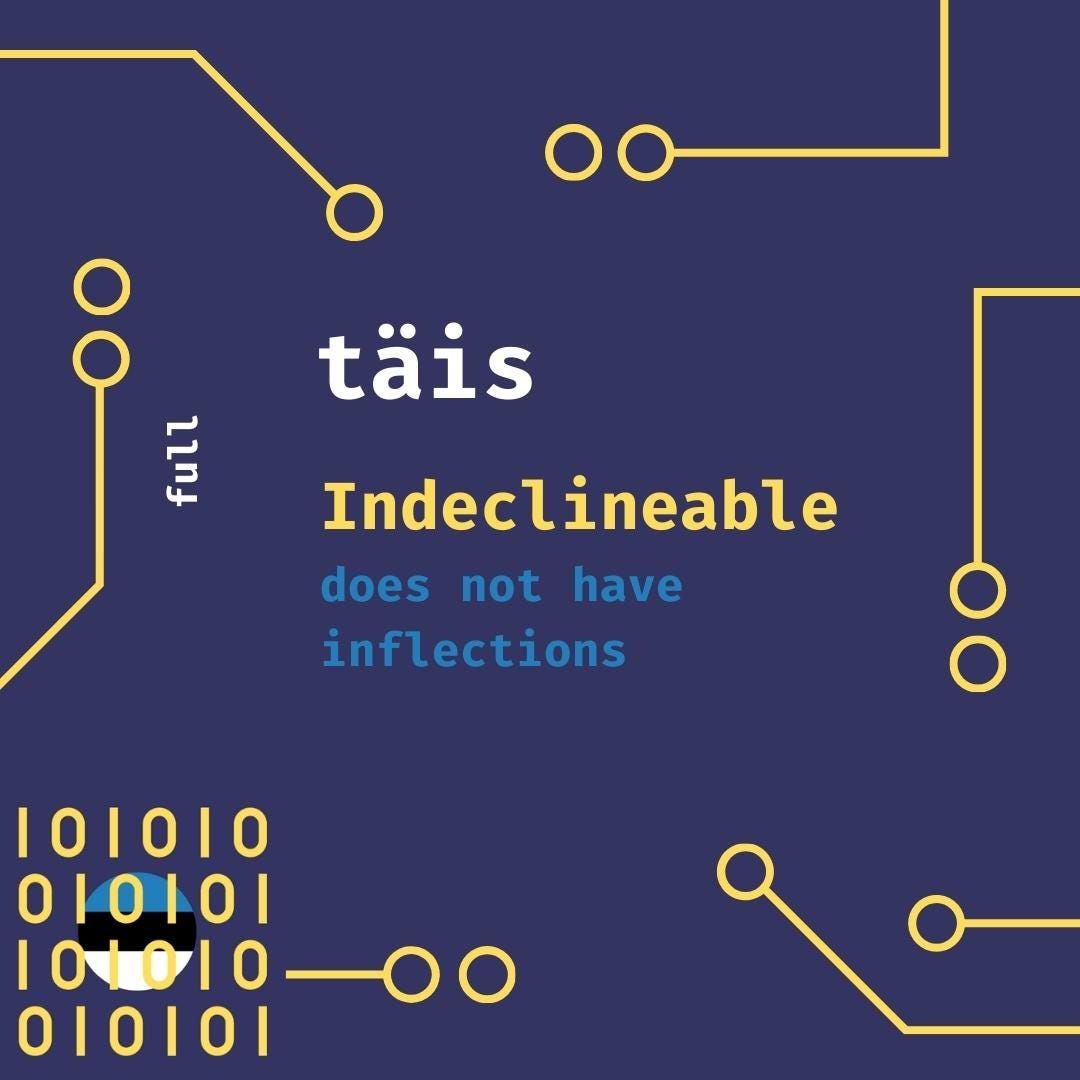Vocab: täis
full
full
Building blocks
The Estonian word täis is derived from the Proto-Finnic word täüsi, which has the same meaning. The Proto-Finnic word täüsi is thought to be derived from the Proto-Finno-Ugric word täwde, which means "fullness".
How to use it
Here are some ways you use the word täis to describe something:
To describe something that is physically full:
täis maja (a full house)
täis tünn (a full barrel)
täis kõht (a full stomach)
täis rong (a full train)
To describe something that is full of something abstract, such as emotion, knowledge, potential, experience, etc:
armastust täis (full of love)
teadmisi täis (full of knowledge)
kogemusi täis (full of experiences)
võimalusi täis (full of opportunities)
To describe a person who is full of energy or enthusiasm:
Ta on energiat täis. (He is full of energy.)
Ta on entusiasmi täis. (She is full of enthusiasm.)
Examples
Taldrik on maitsvat toitu täis
Literally: “Plate is delicious-of food full ”
Idiomatically: “The plate is full of delicious food”
Taldrik - Noun - Nom Sg, "Plate"
on - Verb - 3P Present Sg, "is"
maitsvat - Adjective - Part Sg, "delicious-of"
toitu - Noun - Part Sg, "food"
täis - Adjective - Indeclineable, "full"Tuba on täis naeru ja rõõmu
Literally: “Room is full laughter and happiness”
Idiomatically: “The room is full of laughter and happiness”
Tuba - Noun - Nom Sg, "Room"
on - Verb - 3P Present Sg, "is"
täis - Adjective - Indeclineable, "full"
naeru - Noun - Part Sg, "laughter"
ja - Conjunction, "and"
rõõmu - Noun - Part Sg, "happiness"

